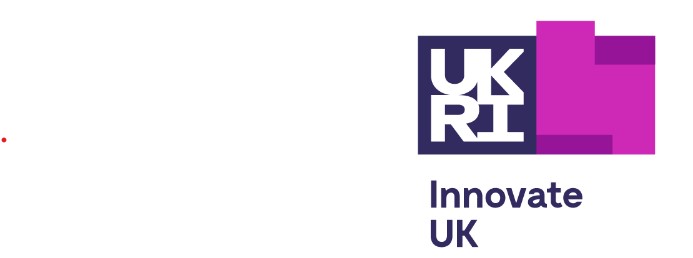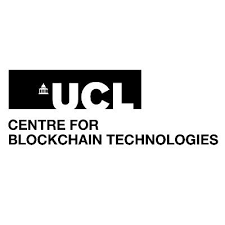Group
Cyber Security Research Group (CSRG)
Unit(s) of assessment: Computer Science and Informatics
School: School of Science and Technology
About the Cyber Security Research Group (CSRG)
The Cyber Security Research Group (CSRG) is a dynamic team of seasoned professionals dedicated to researching and implementing effective solutions to safeguard against cyber threats.
Our diverse team comprises of experts in various areas of cyber security, including but not limited to:
- network security
- cryptography and quantum cryptography solutions
- threat intelligence and modeling
- malware analysis
- penetration testing
- regulated and trustworthy artificial intelligence systems
Our focus
CSRG is committed to advancing the field of cyber security through cutting-edge research and development. We focus on creating innovative and practical solutions to address complex security challenges faced by organisations across the world today.
By staying at the forefront of the latest technological advancements and emerging threats, we provide our clients with tailored solutions that meet their unique needs and requirements.
Our research and development efforts are focused not on only addressing current security challenges but also anticipating future ones. We collaborate with academic institutions, industry partners, and government agencies to share knowledge and provide resources to drive innovation.
Our goal is to provide our clients with the highest level of protection against cyber threats, ensuring their information assets are secure and their operations are uninterrupted. By partnering with CSRG, you can trust that your organisation is in capable hands.
Meet our team
Omprakash Kaiwartya
Associate Professor
Computer Science
Tawfik Al-Hadhrami
Senior Lecturer
Computer Science
Nemitari Ajienka
Senior Lecturer
Computer Science
Xiaoqi Ma
Senior Lecturer
Computer Science
Colin Wilmott
Senior Lecturer
School of Science & Technology
Alexandros Konios
Senior Lecturer
School of Science & Technology
Richard Otuka
Senior Lecturer
Computer Science
Dr Funminiyi Olajide
Online Tutor
Computer Science
Adnan Kiani
Senior Lecturer
School of Science & Technology
John Kingston
Senior Lecturer
School of Science & Technology
Evtim Peytchev
Associate Professor
School of Science & Technology
Pramod Gaur
Senior Lecturer
School of Science & Technology
Dr Vishalkumar Arjunsinh Thakor
Lecturer
School of Science & Technology
Selected partners and collaborators






- National Cyber Security Centre NCSC
- De Montfort University, Cyber Security Centre.
- Catapult Company
- University of Ha'il, Saudi Arabia
- Taibah University, Saudi Arabia.
- Horiba - Mira
- University of Manchester
- University of Ulster
- Cardiff Metropolitan University
- CICESE (Centro de Investigacion Cientifica y de Educacion) – Mexico
- Torrens University Australia, Artificial Intelligence Research and Optimization
- Indian Institute of Technology Roorkee
- Indian Institute of Technology Delhi
- University of Central Lancashire
- Cobac Security
- JMVL Ltd
- Jawaharlal Nehru University New Delhi
- Obuda University
- Experian
- KPMG
Advancing Knowledge — Pioneering Research Projects by our Group
Drive with Confidence
A Safe and Secure Driving System to Mitigate Remote Vehicle Hijacking Risks. The system focuses on:
- The development of a secure vehicular communication system considering physical layer and protocol level security as well as network segmentation approach.
- Integrating an in-vehicle intrusion detection system using artificial intelligence to monitor the vehicle's network for suspicious activity, such as attempts to connect to the vehicle's control systems from an unauthorised connection or device.
PRAVE Project (PRoactive Authentication and Verification Embedded Model for Critical Cyber-Physical Systems).
This Research and Development project will innovate a new proactive security model for protecting cyber-physical systems in the CNI using a trustworthy artificial intelligent approach. PRAVE will focus on proactive authentication and verification protocol with the involvement of some of the physical aspects from the connected smart things within the CNI.
TrustMe Project
This project has developed a secure and trustworthy AI platform suitable for AI developers and data scientists, which provides a scoring mechanism to measure the quality and trust levels of datasets and AI/ML algorithms during the development and deployment phases. The TrustMe platform is running based on a local-host web application with enabled features for designing, developing, and implementing explainable and trustworthy AI applications. TrustMe platform also offers a data quality score using the Quality of Data (QoD) estimator.
Cyber Security for Smart EV Charging Network
The core objective of the E-Mobility Cyber Security project is to foster NTU-Industry research collaboration toward EV-centric smart, secure, and green mobility. The expertise-centric research collaboration consists of three working groups including vehicular communication for EV charging management, cyber security of charging infrastructure, and data analytics for cyber risk prediction.
DroNET Cyber Security for Next-Generation Drone Networking
DroNET is targeting to innovate novel security techniques for connected drone communication to enable a range of next-generation drone use cases to realize securely connected and autonomous drones. A technology resource team will be built up in the department utilizing the drone-centric communication networking, robotics, and security expertise at NTU.
LiNET-Visible Light Secure Networking for Connected Vehicles
The LiNET project is targeting to innovate visible light communication-enabled networking framework for enabling CAV traffic environments. Building on our existing research on connected vehicles, this team will focus on developing a secure visible light communication framework for enabling CAV.
Crowd-Sourced Bug Bounty Platform for Cyber Security University Students
A funded project by Innovate UK to prototype and develop a product named CyberIncentive is a bug bounty platform tailored to empower the future cyber workforce.
It provides curated access to real-world experiences and recruitment opportunities while driving down the ethical hacking costs.
CyberMIND
An AI-based platform helping cyber security professionals to detect, predict and manage stress. Showing cyber professionals and cyber teams how to reduce and manage stress levels. Improving your resilience and wellbeing helping you manage cyber crime from a position of strength.
Security-aware deep reinforcement learning for Autonomous Driving Supervisors in Driver Assistance Systems / DAS-equipped vehicles
This project was supported by the European Commission Erasmus+ programme with France.
The project aim was to design, model and develop a secure deep reinforcement learning system used in developing autonomous driving systems that can maintain good driving behaviour resistance to road’s conventional challenges and manoeuvres as well as potentially malicious input from the crowd-sourced surrounding environment.
Intelligent Warehouse Management System (KTP Project with Innovate UK).
Group research output
Osama Saied, Project's title: LiNET: Visible Light Secure Networking forConnected and Autonomous Vehicles.
Ali:
Tawfik:
Alex:
Colin Wilmott:Project 1: Mar 2023. Quantum Simulation Algorithms for FinTech. Award from UK Quantum Computer and Simulation Hub. Total £100K for one year. Project 2. July 2023. Quantum Predictive Sensing. Collaboration with Toyota and ETH Zurich. During the collaboration “Predictive Sensing” will be investigated. We will investigate the usability of gate-based quantum computing for computer vision applications. In this context NTU will contribute by: Aiding in selecting the right application for gate-based quantum computing in computer vision; Providing the background knowledge to select a quantum computing algorithm that has the potential to solve the computer vision task. Omprakash:
Isma:
Xiaoqi:
Adnan Kiani:
Abdallah:
Richard:
Peer-Reviewed Conference Papers (12 representative papers, 2 for each year):
|
- Obinna Johnphill — Machine learning-based threat tolerance and self-healing method for autonomous cyber-physical systems
- Saim Shahid — ISAM: IoT-based Secure Air Quality Monitoring
- Safa Hamdare — E-Mobility: Cyber Security for Connected EV Charging networks
- Maria Drolence — Cyber Security in Connected and Autonomous Vehicles
- Rahma Hammedi — Privacy Preservation in Connected Vehicle Environment
- James Dietch — AI/ML for 3D printing in Industry 4.0
- Oghenetejiri Okporokpo — Cyberattack Detection and Incident Response in New Emerging Trends of Business Applications and Cloud Infrastructure
- Aftab Barkat — Advanced Persistent Threats (APTs): A Machine Learning Approach for Enhanced Detection and Mitigation
- Oluwasegun Michael Apejoye — Deep Learning Models for Anomaly Detection in the Internet of Things (IoT) Devices
- Raqeeb Rasheed — Quantum Cryptography and Skew Polynomials: A Unified Approach to Privacy Preservation in Cybersecurity
- Shadrach Olarewaju — Biometric Data Privacy and Security: Developing Robust Anti-Fraud Measures
for Business Organisations. - Manisha Miah - Design and Development of AI-enabled Cyber Forensic Systems for Smart Cities Environment
- Daniel Shala - Cyber Security for In-Vehicle Communication in Connected and Autonomous Vehicles.